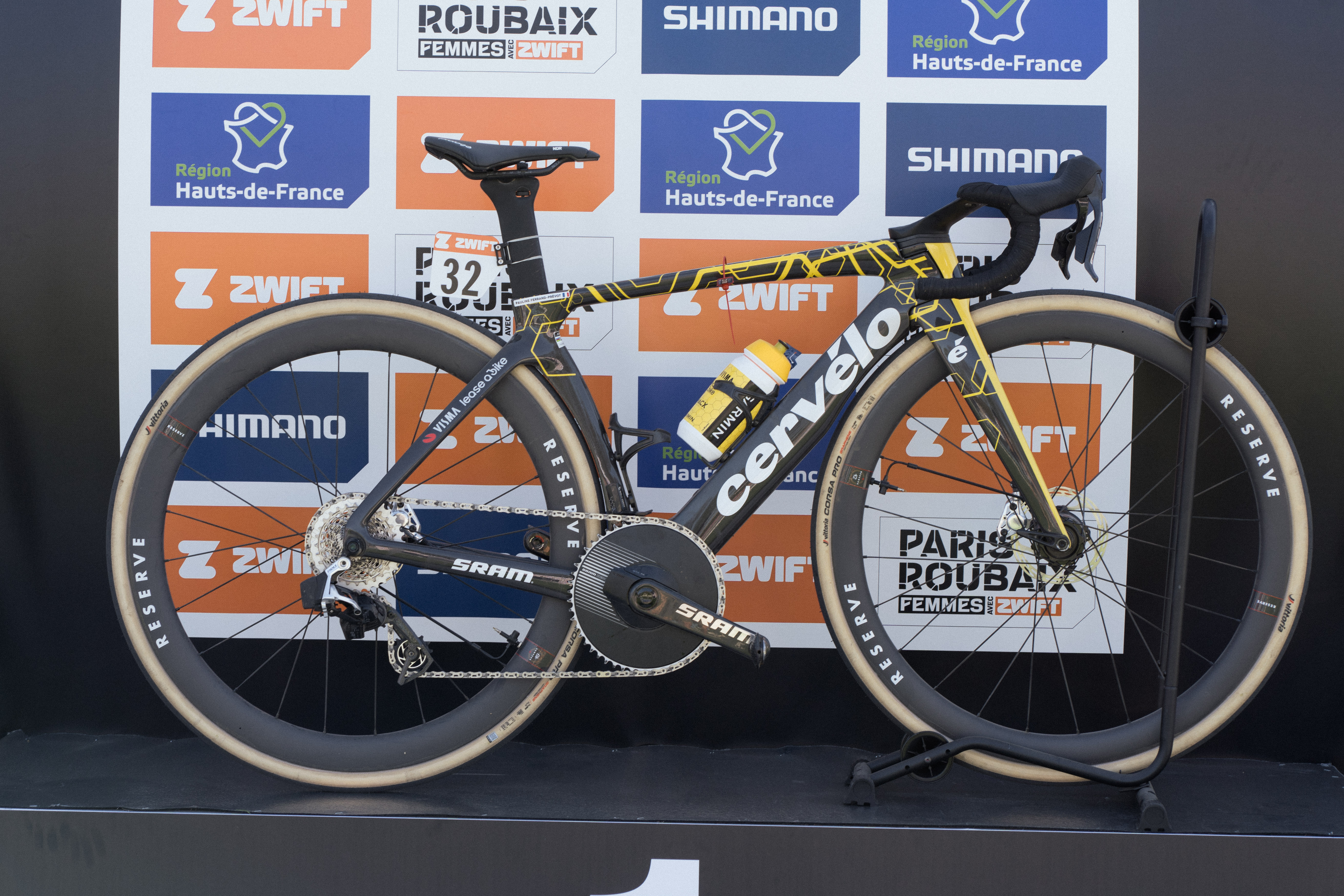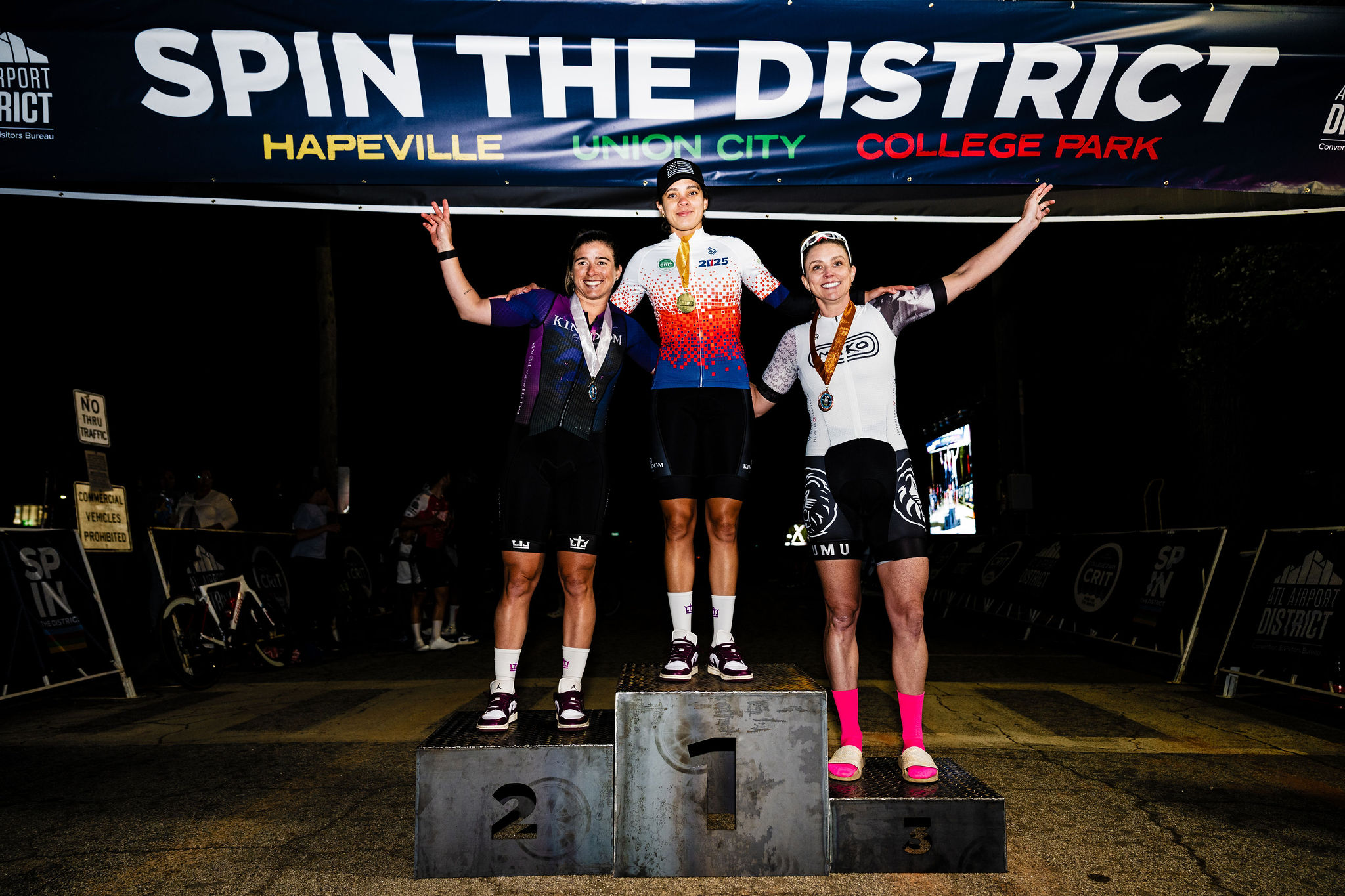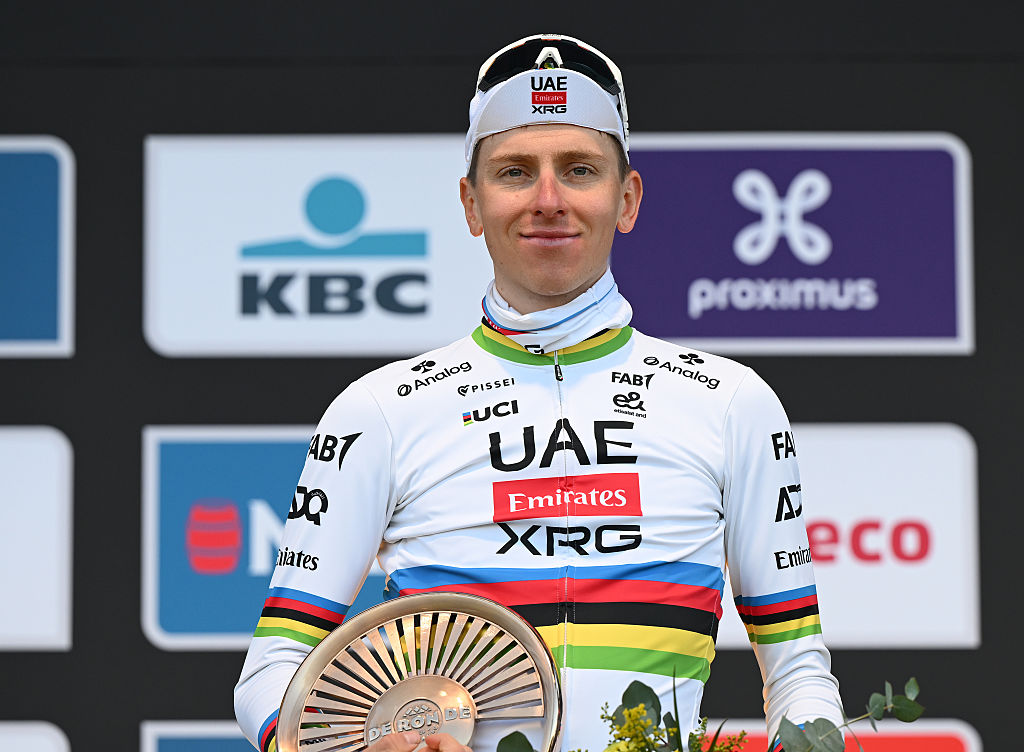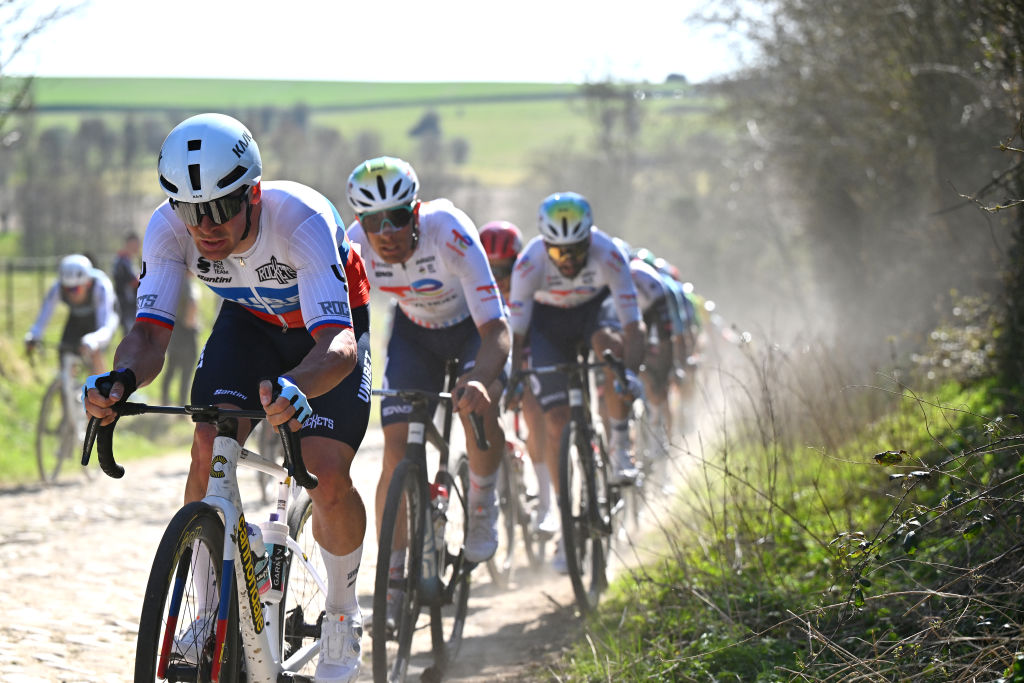Arctic Race of Norway 2021 – Preview
Barguil, Hermans, Kristoff, Naesen, Laporte among the starters of the eighth edition
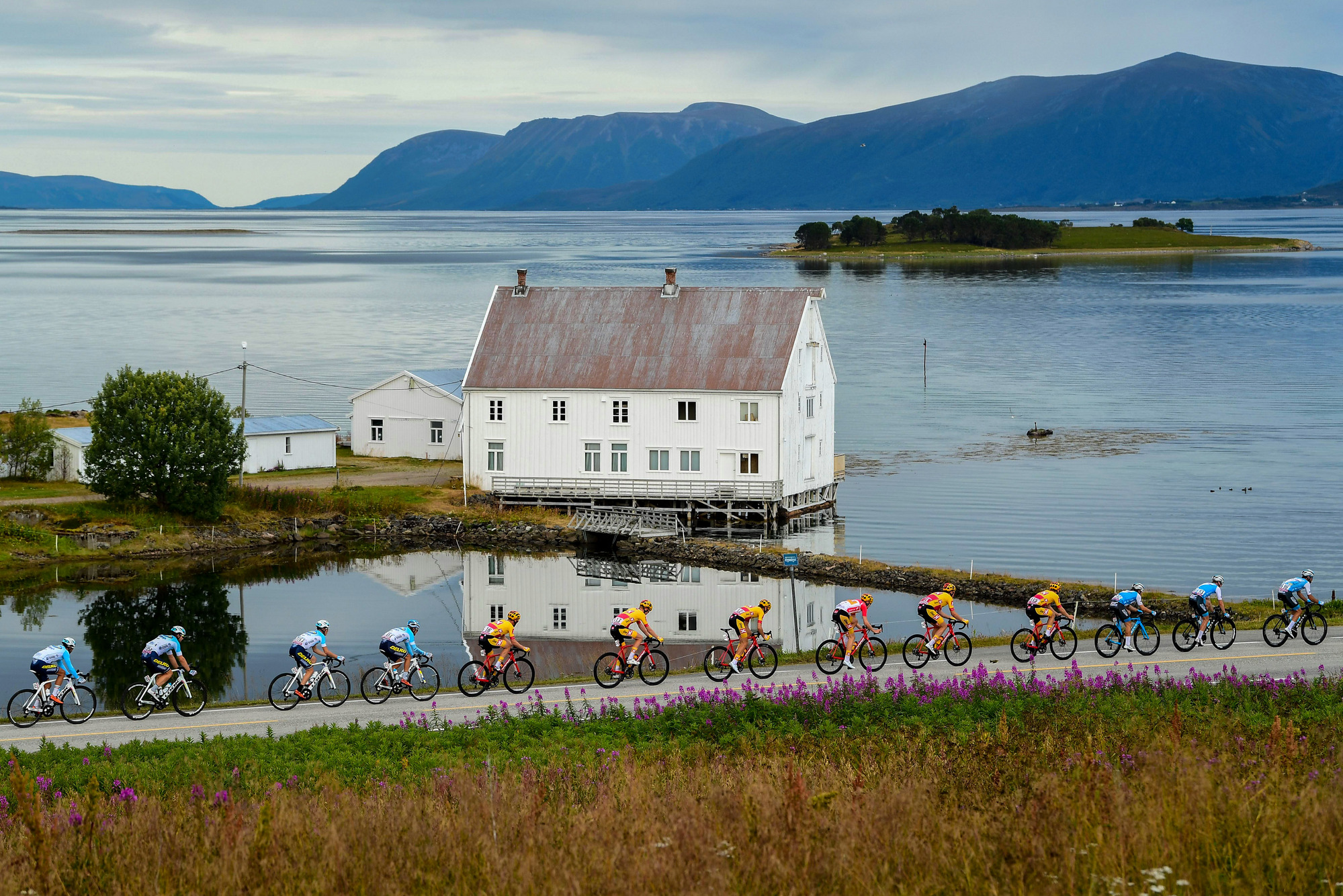
After a year off the calendar due to the COVID-19 pandemic, the Arctic Race of Norway returns on Thursday August 5 for four days of racing in the far north of the country.
The eighth edition of the race, which heads into Finland for the first time, is run at 2.Pro level – a step below the WorldTour – and organised by Tour de France owners ASO.
Previous winners of the race, which has run since 2013, include Thor Hushovd, Steven Kruijswijk, Gianni Moscon and Alexey Lutsenko, with the hilly route often throwing up close races at the top of the general classification.
The field this year isn't packed with stars, with riders either recovering from the Tour de France and Tokyo Olympics or preparing for the Vuelta a España and World Championships elsewhere.
However, there are some big names set to start in Tromsø, including Alexander Kristoff (Norway National Team), Warren Barguil (Arkéa-Samsic), and Oliver Naesen (AG2R Citroën).
The race features a yellow/orange 'midnight sun' jersey for the GC winner, a green jersey for points, salmon-coloured for the top climber, white/red for the best young rider, as well as prizes for the top team, most combative rider, and a grey, fan-voted viking jersey handed out to the 'best teammate' every day.
One quirk of racing in the Arctic circle that riders won't experience anywhere else on the pro calendar will be the near-24 hours of daylight. Held as it is in August at a latitude of 70°N, the sun rises at 3am and sets at gone half ten at night, though the sun never really sets, with the four hours of 'night' more like a twilight.
The riders
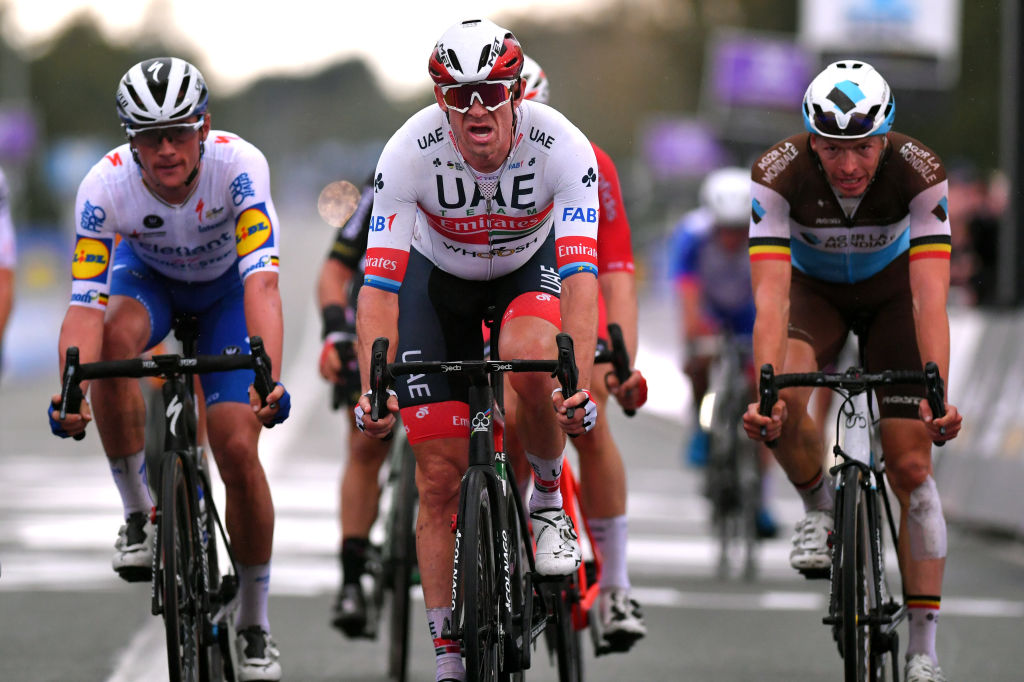
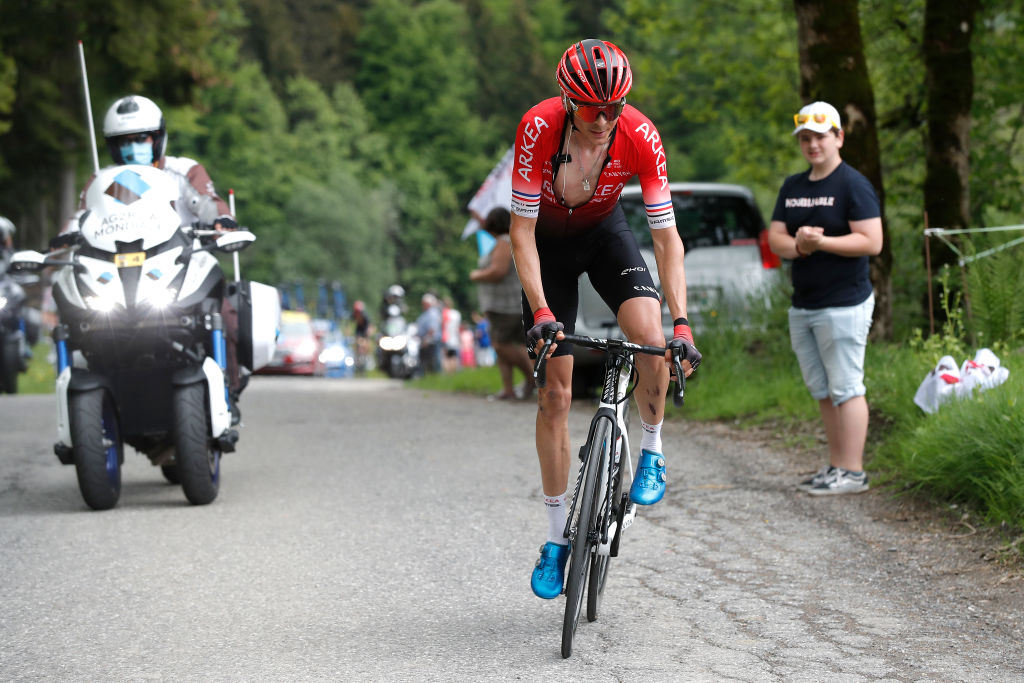
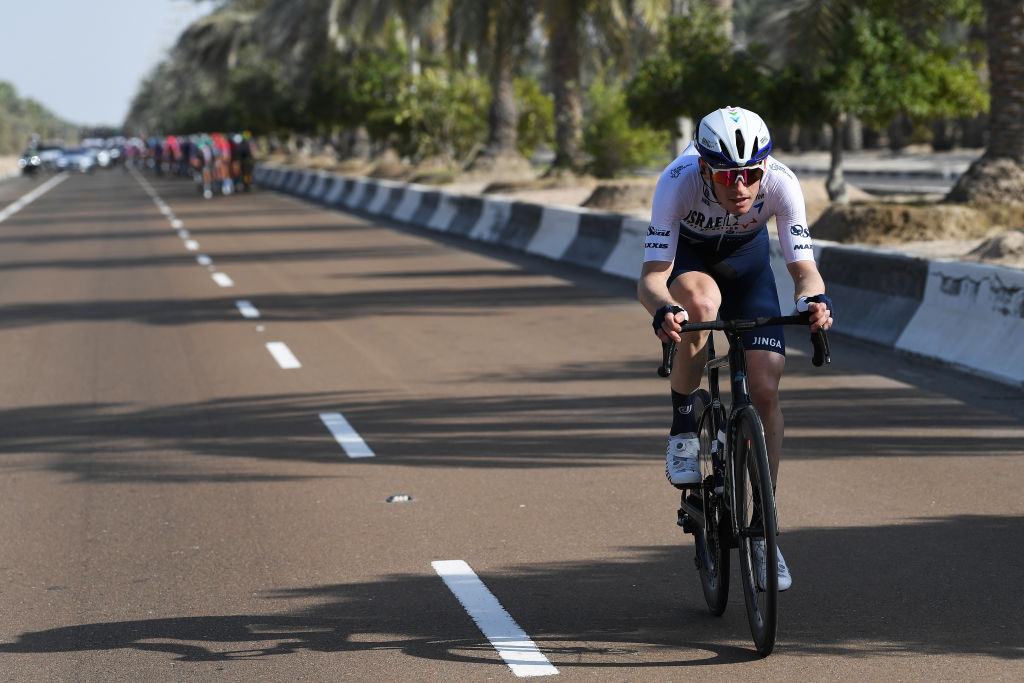
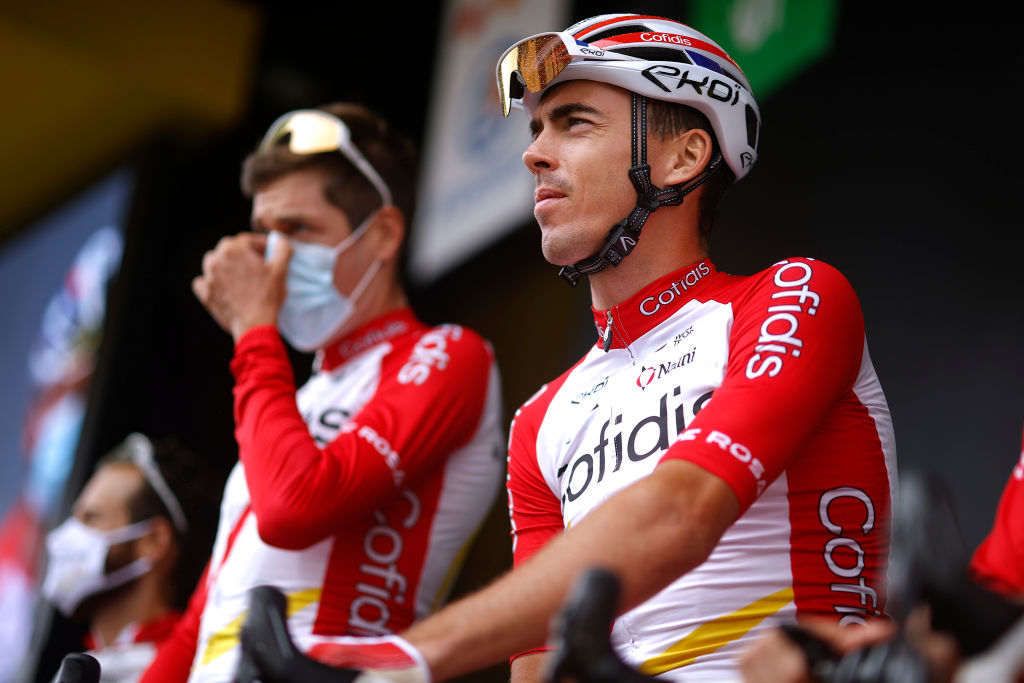
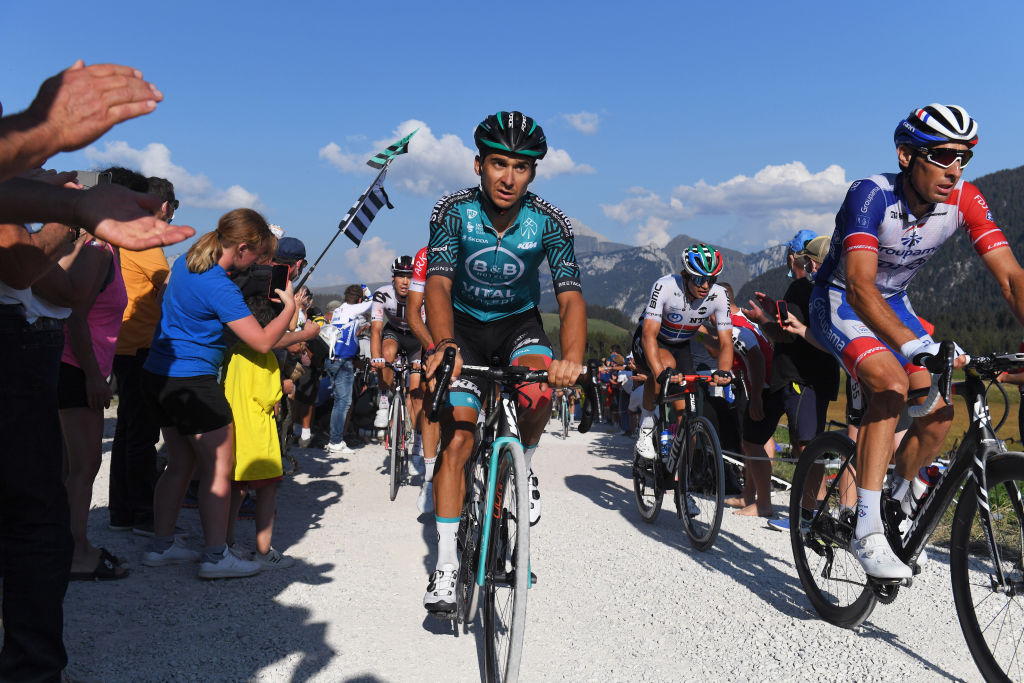
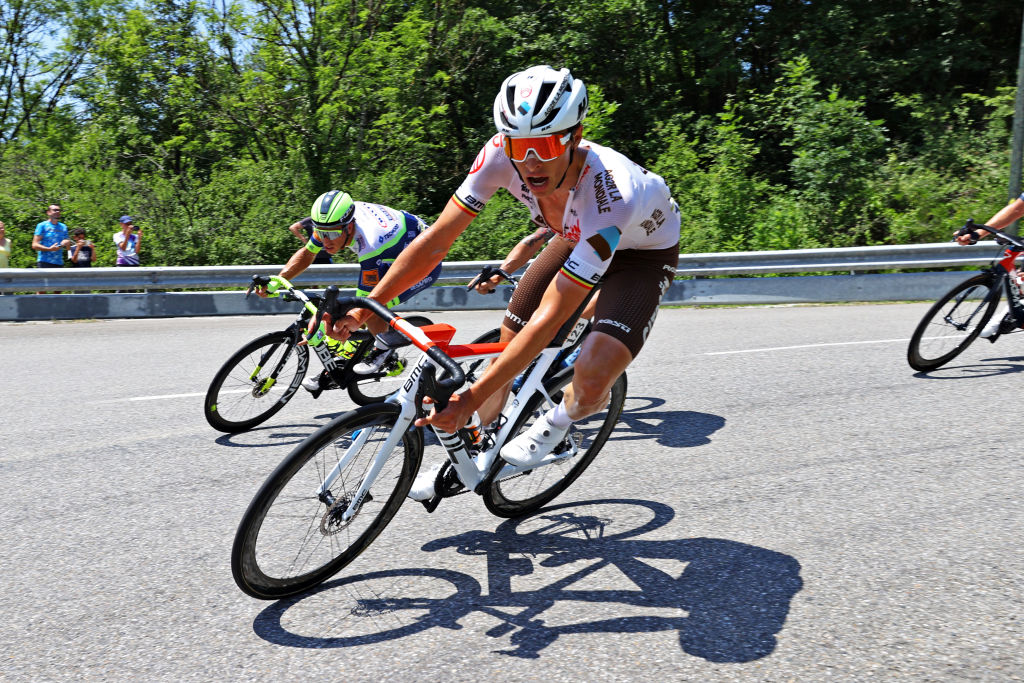
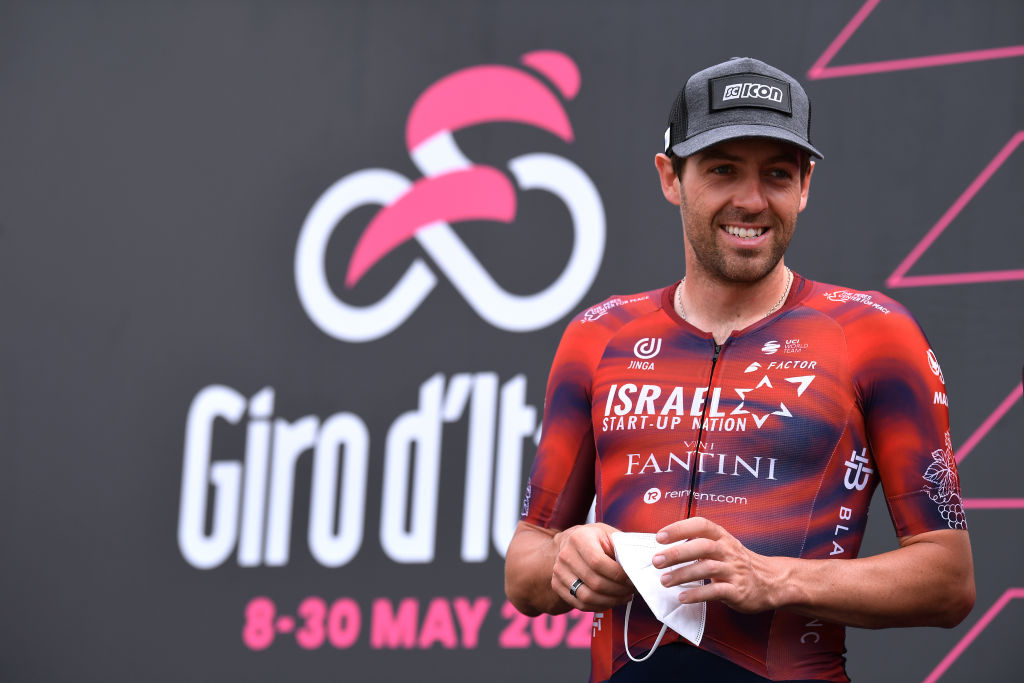
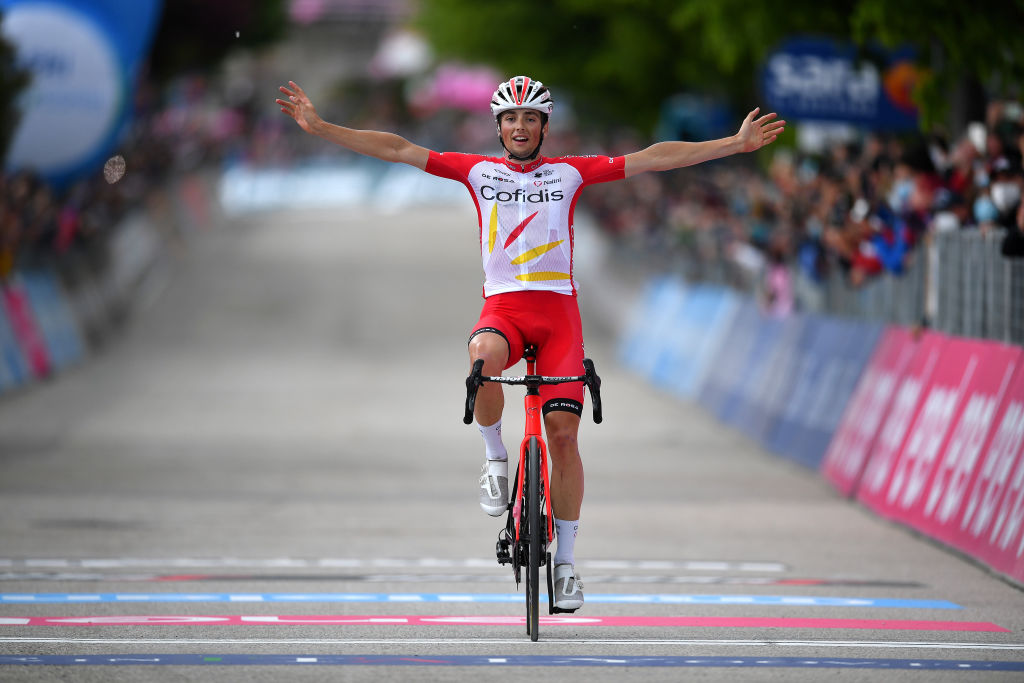
Seven WorldTour teams will line up in Tromsø – AG2R Citroën, Astana-Premier Tech, Bora-Hansgrohe, Cofidis, Israel Start-Up Nation, Intermarché-Wanty-Gobert, Qhubeka NextHash. Those squads will be joined by 10 ProTeams, a Norwegian national selection, and Norwegian Continental squad Coop.
Record stage winner and home favourite Alexander Kristoff – riding for the Norwegian selection – is arguably the biggest name on the start list. The 34-year-old from Stavanger has won five stages of the race across four editions from 2014 to 2017. He could add to that this year but looks unlikely to repeat his past second and fourth overall finishes.
He'll be joined in the six-man team by trade teammate Sven Erik Bystrøm and promising neo-pro Andreas Leknessund, who won the Giro della Friuli Venezia Giulia last season. Other notable Norwegians at the race include Edvald Boasson Hagen (Team TotalEnergies) and past stage winners Odd Christian Eiking (Intermarché-Wanty-Gobert) and Markus Hoelgaard (Uno-X).
Considering the summit finish on stage 3 and the tricky finishes in the rest of the race, there are a handful of top favourites set to start – all climbers, of course. Warren Barguil (Arkéa-Samsic) is chief among them. The Frenchman had a disappointing Tour de France but finished top five at La Flèche Wallonne and his National Championships this year and was second here in 2019.
Ben Hermans (Israel Start-Up Nation) will be another top contender, having won on the Målselv summit finish six years ago. He won the Giro dell'Appennino in June and is a strong climber. Delko's Eduard Prades won the Tour of Norway back in 2018 but hasn't had a good 2021 so far.
Cofidis rider Victor Lafay won a mid-mountain stage at the Giro d'Italia and could contend here, while Team TotalEnergies' best hope is Spaniard Cristián Rodríguez, who won the Tour du Rwanda. Elsewhere, Hoelgaard and Eiking both have top 10s to their name in past editions.
Along with Kristoff and Boasson Hagen, there's a good selection of other sprinters taking part. Bryan Coquard (B&B Hotels p/b KTM) and Danny Van Poppel (Intermarché-Wanty-Gobert) have both won stages here in the past, though neither really came close to success at the recent Tour de France.
Cofidis' Christophe Laporte is a very versatile sprinter and could even contend for a high overall position. Dan McLay heads up Arkéa-Samsic's sprint effort, while Rudy Barbier is Israel Start-Up Nation's choice. Martin Laas (Bora-Hasgrohe) and Eduard-Michael Grosu (Delko) are also racing.
Other notable names include Classics men Oliver Naesen, Alexis Gougeard, Stan Dewulf (AG2R Citroën), and Niki Terpstra (Team TotalEnergies). Former hour record holder Alex Dowsett (Israel Start-Up Nation), Tour de France breakaway mainstay Ide Schelling (Bora-Hansgrohe), and former U23 world champion Samuele Battistella (Astana-Premier Tech).
The route
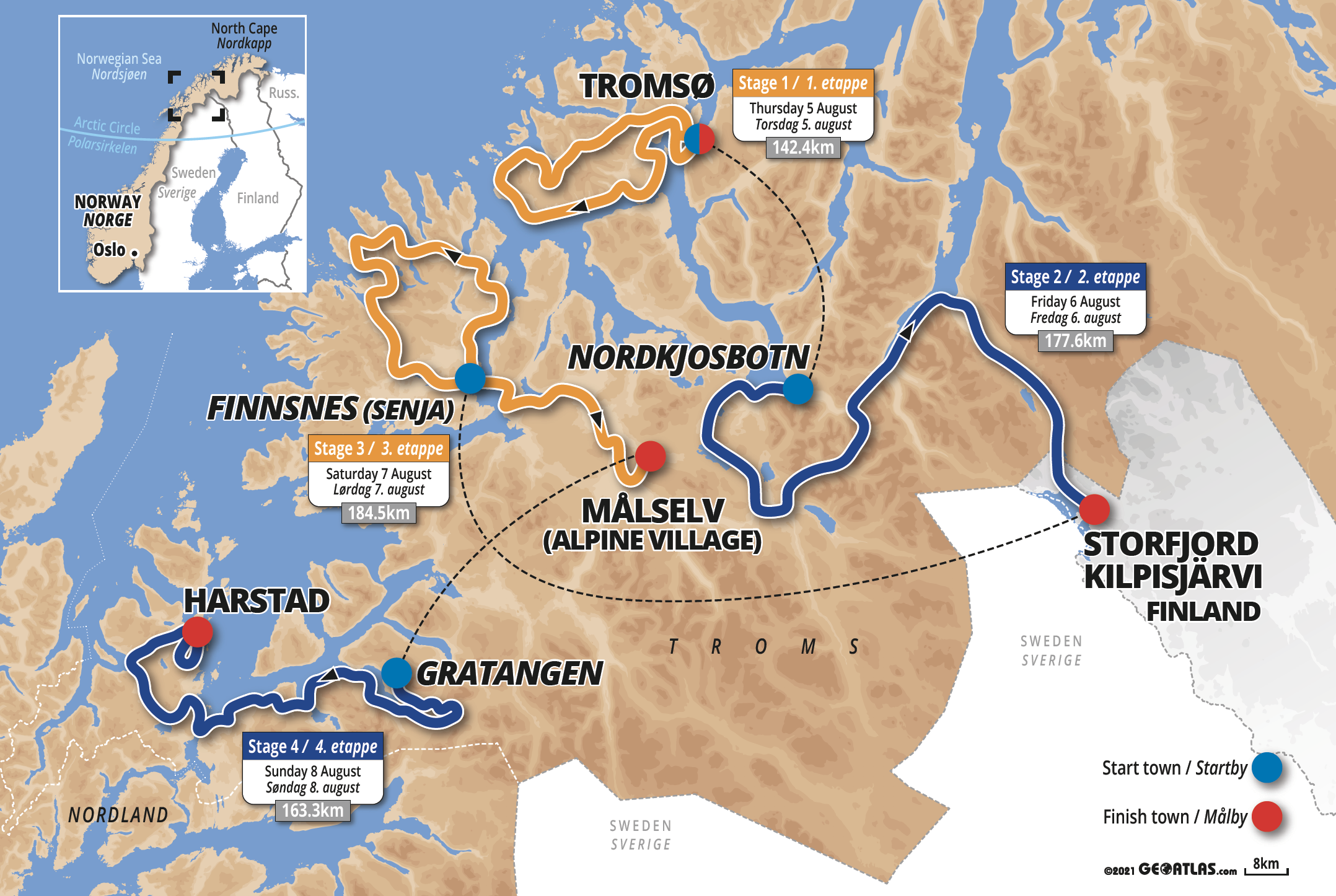
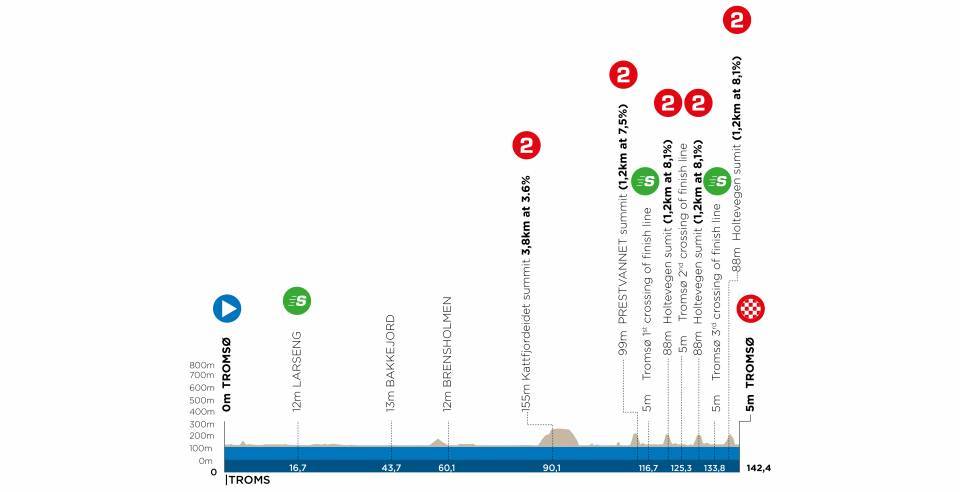
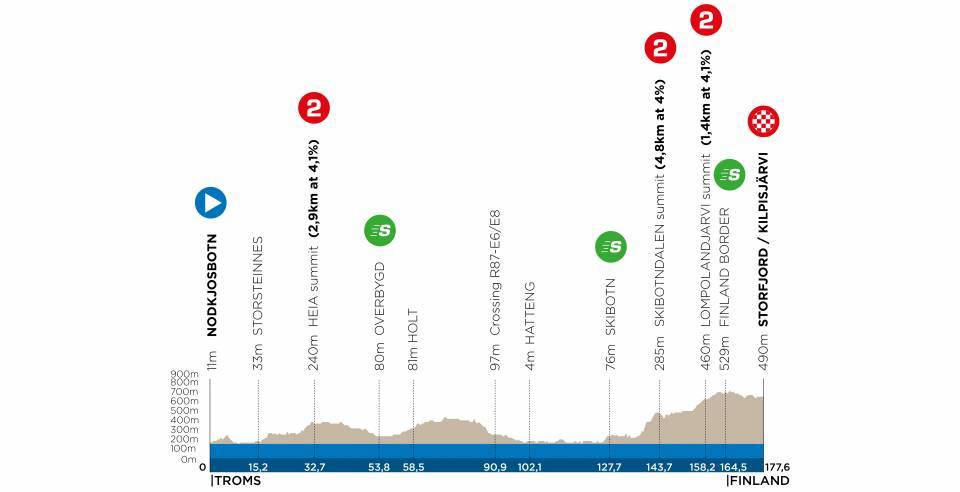
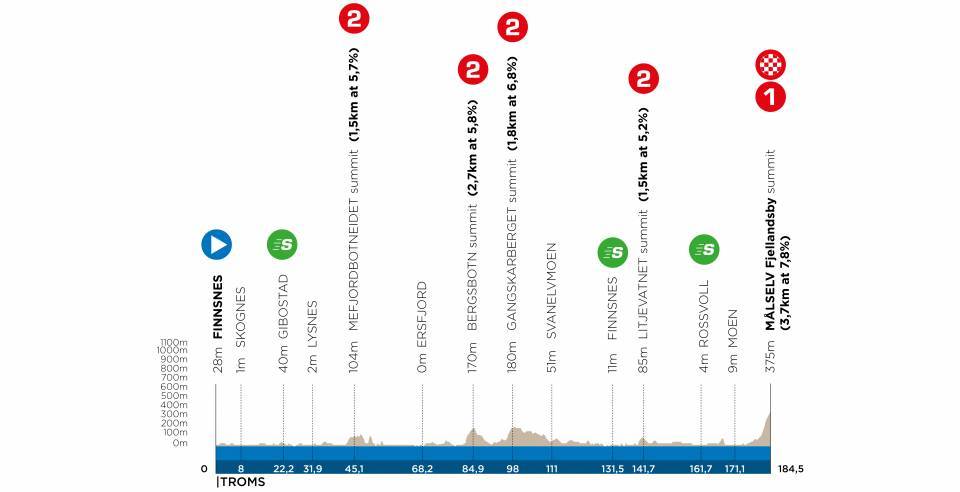
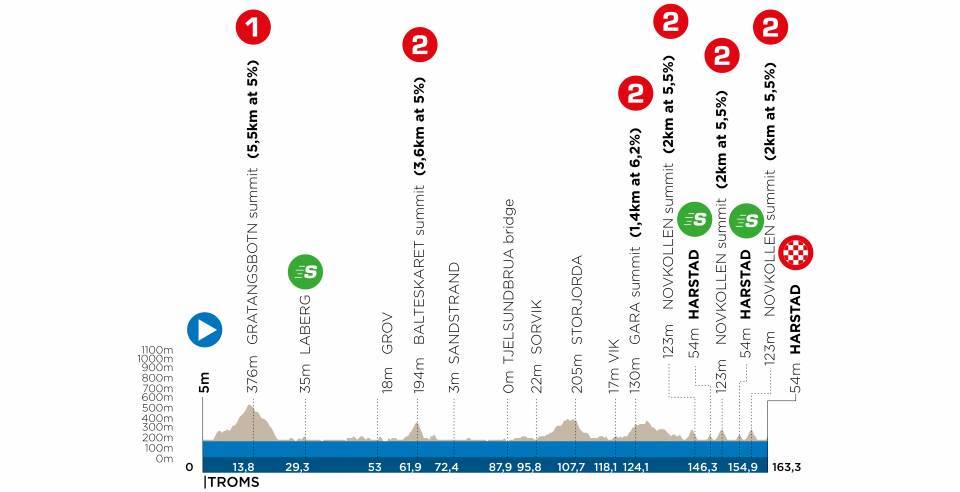
The city of Tromsø – the third-largest city in the Arctic circle behind Murmansk and Norilsk – hosts the start and finish of the opening stage, a 142.4 kilometre run around the island of Kvaløya with three laps of a hilly city circuit to finish.
The stage skirts the outer edge of the island, taking on the second-category challenge of the Kattfjordeidet (3.8km at 3.6 per cent) after 90 kilometres. The sharper climb of Prestvannet (1.2km at 7.5 per cent) followed at 116.7 kilometres as the riders re-enter Tromsø. Three laps of the 8.6-kilometres circuit – similar to the final stages in 2014 and 2017 – end the day, with the stage-deciding Holtevegen climb (1.2km at 8.1 per cent) coming in the final three kilometres on each lap.
Stage 2 sees the riders start in Nordkjosbotn, an hour south of Tromsø, taking on a 177.6-kilometre race east to Kilpisjärvi just across the Finnish border. Three second-category climbs are dotted throughout the stage along with another trio of intermediate sprint.
The first of the climbs – Heia (2.9km at 4.1 per cent) comes 32.7 kilometres into the day, while a tough, largely uphill run to the finish includes Skibotndalen (4.8km at 4 per cent) and Lompolandjarvi (1.4km at 4.1 per cent) inside the final 35 kilometres. The run to the finish, though, is a flat one, meaning a first chance of the race for hardy sprinters.
The third stage will see the riders set off from Finnisnes, riding 184.5 kilometres to the summit finish of Målselv, last seen in 2015. The peloton will head north around Senja island, tackling three second-category climbs along the way – Mefjordborneidet (1.5km at 5.7 per cent), Bergsbotn (2.7km at 5.8 per cent), and Gangskarberget (1.8km at 6.8 per cent).
After passing through the start town after 131 kilometres, it's south towards the finish, with the Litjevatnet climb (1.5km at 5.2 per cent) coming 43 kilometres from the line. The big challenge of the day, though, comes at the end, with the first-category, 3.7-kilometre climb averaging 7.8 per cent. It's a day that is likely to prove decisive for the general classification with double-digit gradients coming on the first half of the climb.
Finally, the riders will take on the southern-most stage of the race, heading 163.3 kilometres west from Gratangen to Harstad on the island of Hinnøya – another hilly day of racing that concluded with a reduced sprint in 2015. The climbing starts from the beginning of the stage, with the first-category test of Gratangsbotn (5.5km at 5 per cent) coming at 13.8 kilometres.
Another hilly closing circuit finishes out the race, though riders will have to climb the second-category Balteskaret (3.6km at 5 per cent) and Gara (1.4km at 6.2 per cent) along the way. Three laps of an 8.4-kilometre circuit comes in Harstad, with the second-category Novkollen (2km at 5.5 per cent) lying 4.6 kilometres from the finish, which kicks up for a kilometre at 5.5 per cent – a challenging end to the 2021 Arctic Race of Norway.
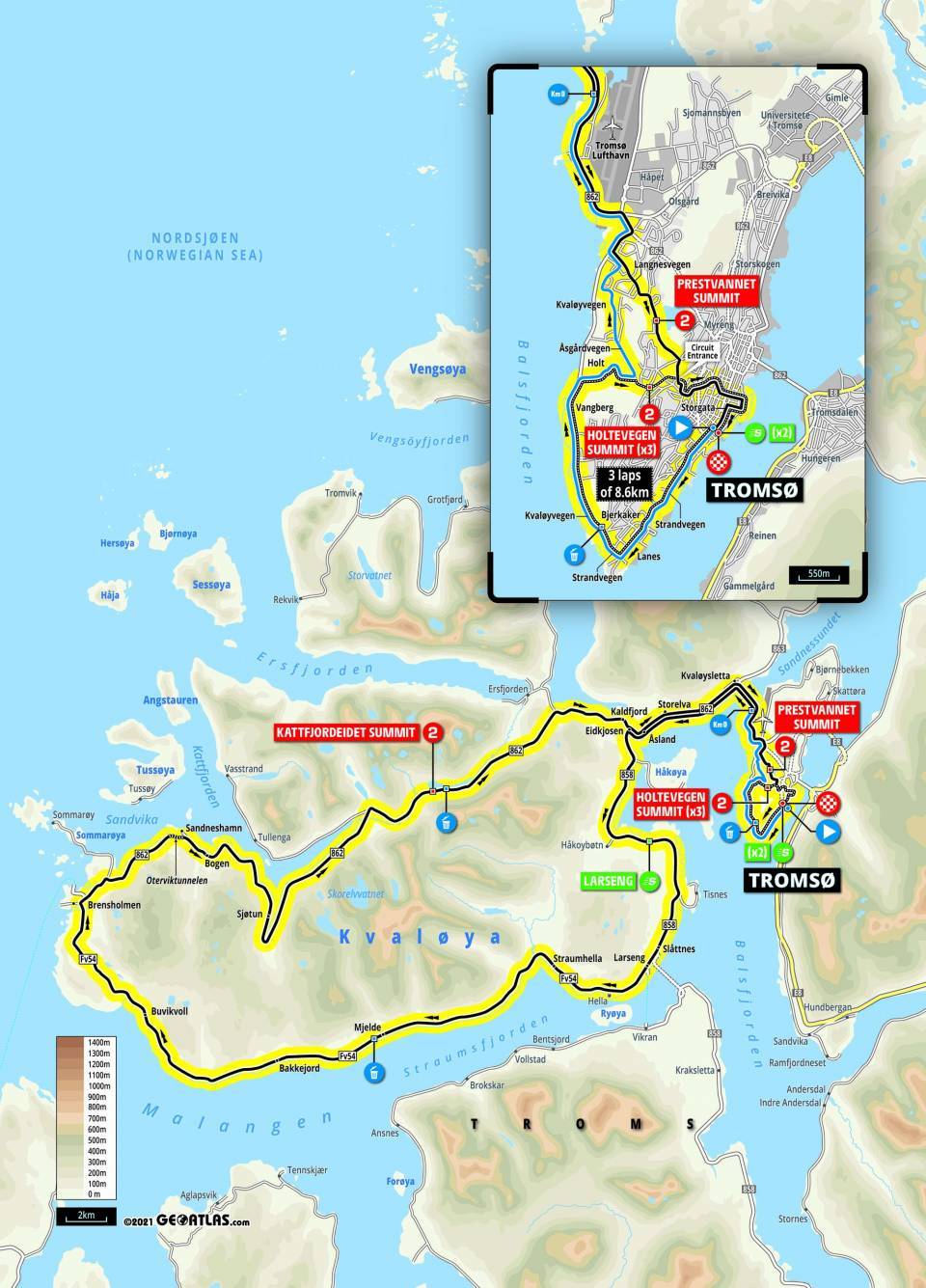
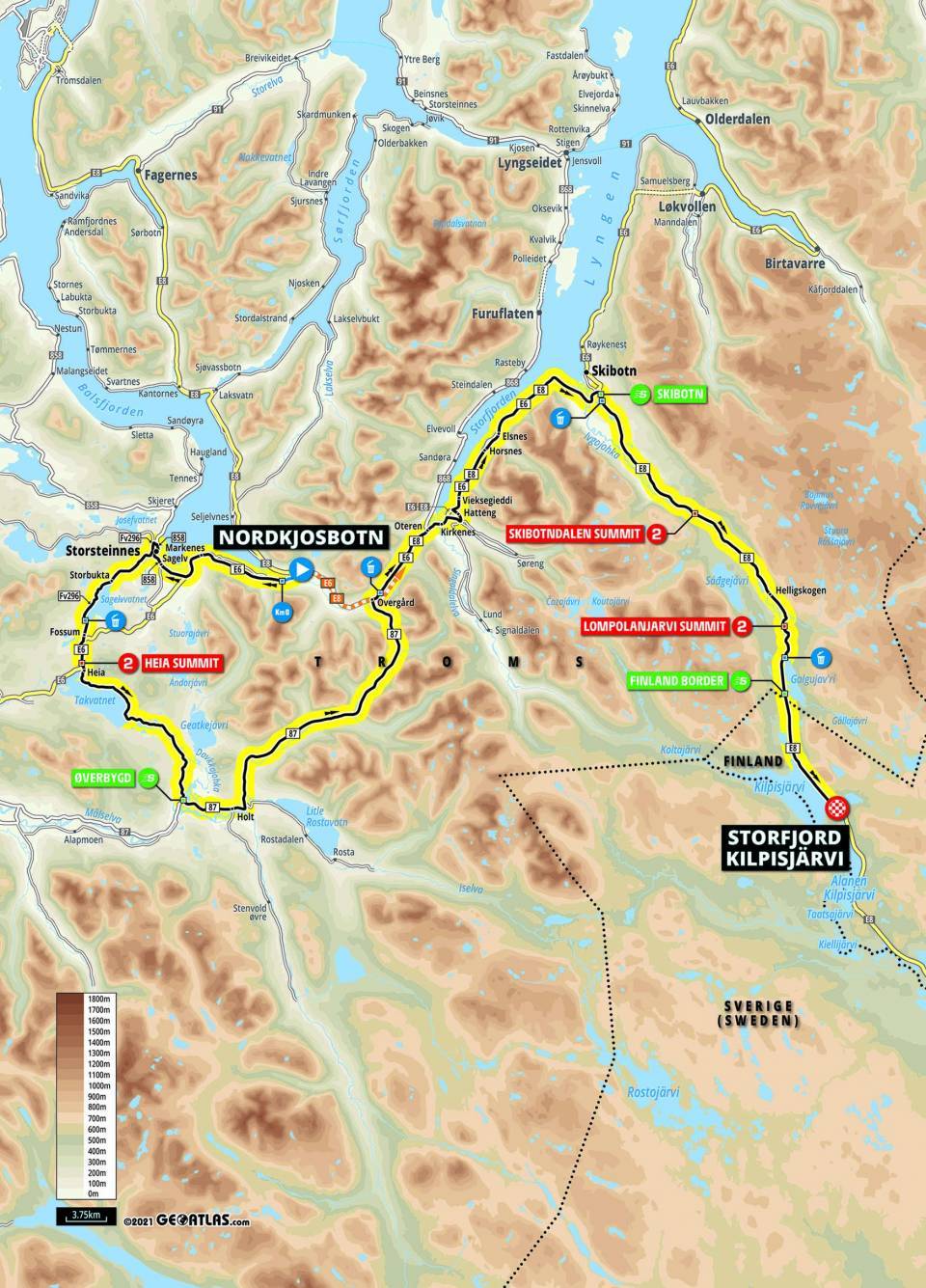
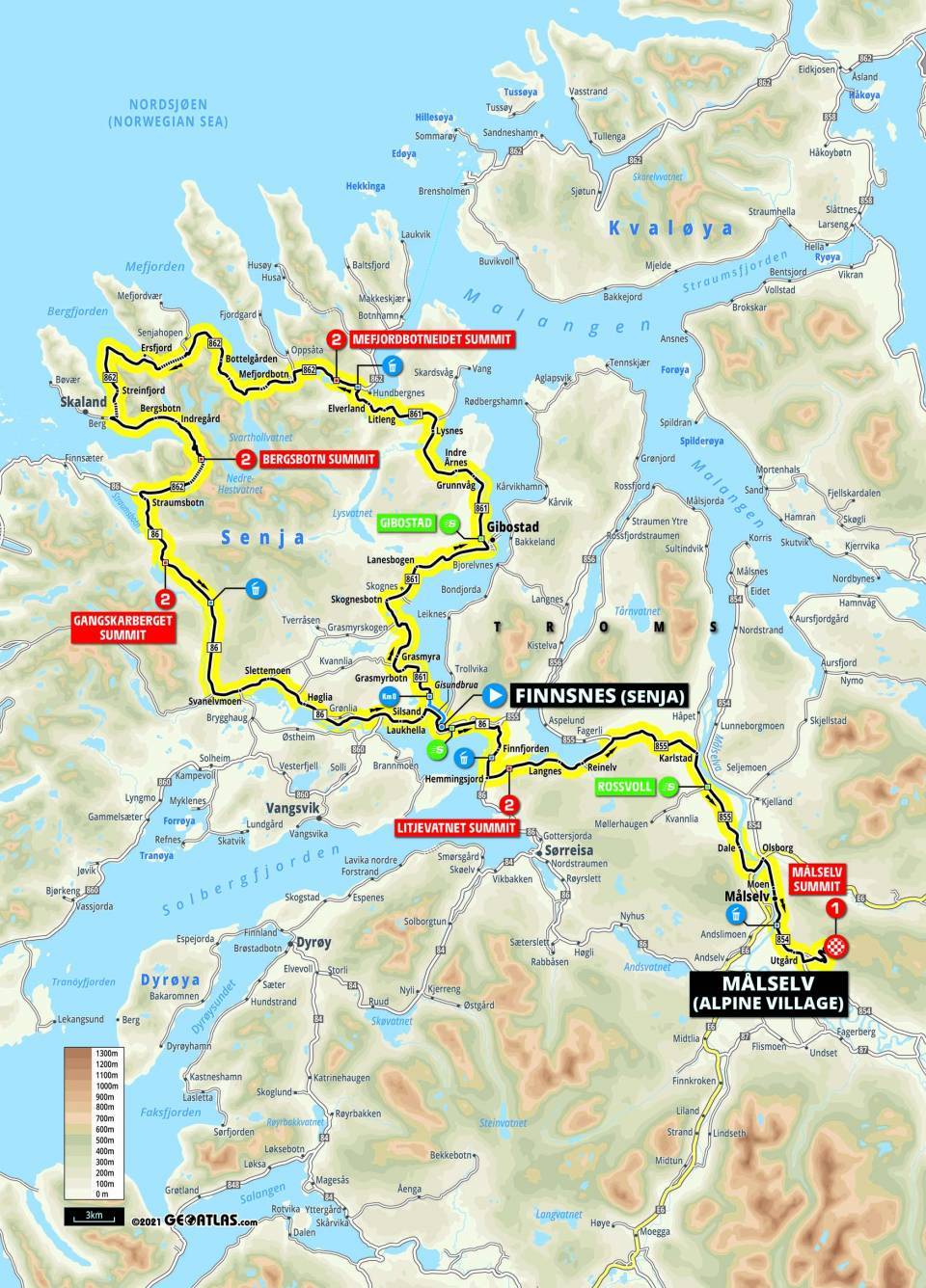
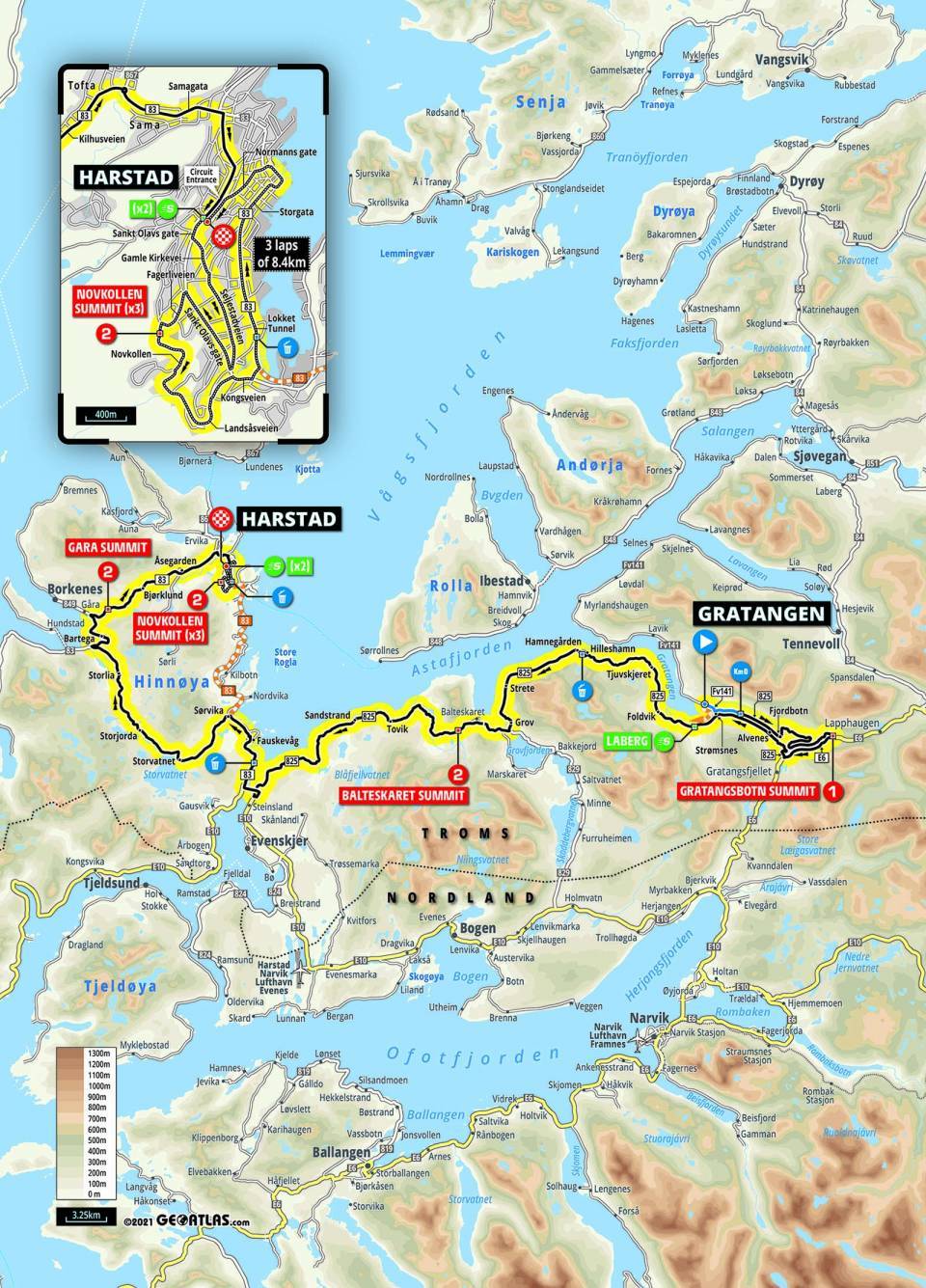
Get The Leadout Newsletter
The latest race content, interviews, features, reviews and expert buying guides, direct to your inbox!
Dani Ostanek is Senior News Writer at Cyclingnews, having joined in 2017 as a freelance contributor and later being hired full-time. Before joining the team, she had written for numerous major publications in the cycling world, including CyclingWeekly and Rouleur. She writes and edits at Cyclingnews as well as running newsletter, social media, and how to watch campaigns.
Dani has reported from the world's top races, including the Tour de France, Road World Championships, and the spring Classics. She has interviewed many of the sport's biggest stars, including Mathieu van der Poel, Demi Vollering, and Remco Evenepoel, and her favourite races are the Giro d'Italia, Strade Bianche and Paris-Roubaix.
Season highlights from 2024 include reporting from Paris-Roubaix – 'Unless I'm in an ambulance, I'm finishing this race' – Cyrus Monk, the last man home at Paris-Roubaix – and the Tour de France – 'Disbelief', gratitude, and family – Mark Cavendish celebrates a record-breaking Tour de France sprint win.
Latest on Cyclingnews
-
Gallery: Paris-Roubaix women's podium bikes
Fresh off the cobbles, all three bikes from the podium of Paris-Roubaix Femmes -
USA CRITS: Lucas Bourgoyne goes back-to-back at Hapeville Crit while Aylena Quevedo takes pro women's win
Women's Kingdom Elite team goes one-two with Jeydy Praderas on podium ahead of Erica Carney -
'We should just go for it' - Tadej Pogačar nervous but confident about Paris-Roubaix debut
UAE Team Emirates prepare to take on Van der Poel, Pedersen, Van Aert in the Hell of the North -
Lukáš Kubiš inspired by Peter Sagan as he leads Unibet Tietema Rockets charge into debut Paris-Roubaix
Slovakian revelation in Spring Classics heads up French squad at the biggest race in their history
